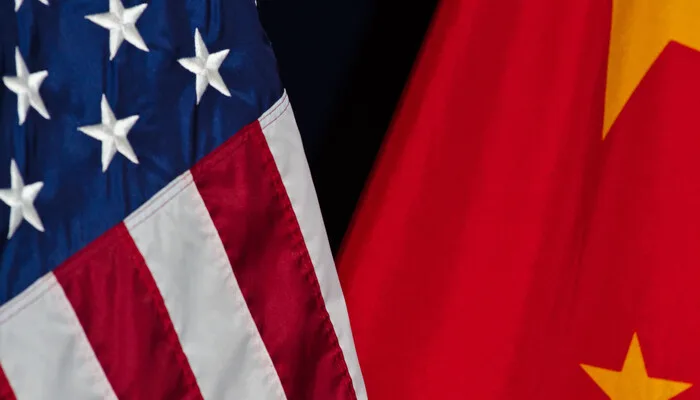The ongoing US-China trade war saw a new turn on Wednesday as China expressed willingness to engage in talks with Washington. This statement came just a day after US President Donald Trump hinted that steep tariffs could be reduced once a deal is reached between the two nations.
Tariffs Soar in Heated Trade Battle
Since the start of Trump’s second term in January, the US has escalated its trade war with China. Washington has imposed tariffs as high as 145% on Chinese goods, citing concerns such as China’s alleged role in the fentanyl trade and other unfair trade practices. In response, Beijing retaliated with 125% tariffs on US exports.
These tit-for-tat measures have shaken global markets and stoked fears of a worldwide economic slowdown.
China Ready to Negotiate, But Firm
At a press briefing on Wednesday, Chinese Foreign Ministry spokesperson Guo Jiakun emphasized that China remains open to dialogue. “The door for talks is wide open,” he said. However, he cautioned against using pressure tactics, adding, “Saying on one hand that you want a deal while exerting extreme pressure on the other is not the right approach.”
Guo also reiterated China’s stance: “We do not wish to fight, nor are we afraid of fighting. If needed, we will fight to the end.”
Read: Saudi Arabia and India Strengthen Ties with Key Agreements in Energy, Defense, and Trade
Trump’s Shift in Tone
On Tuesday, Trump acknowledged the aggressive nature of current tariffs, calling them “very high.” He stated that they would be “substantially lowered” once an agreement is finalized. While not offering exact figures, he confirmed that the tariffs “won’t be zero” but would decrease.
Trump’s remarks followed increasing market anxiety over his feud with Federal Reserve Chairman Jerome Powell. The president had previously criticized Powell for warning that tariffs could drive inflation higher. However, Trump now says he has no plans to fire him, stating, “I have no intention of firing him… it’s a perfect time to lower interest rates.”
Market Reaction Positive
Following these developments, global markets responded with optimism. Wall Street indices surged after US Treasury Secretary Scott Bessent expressed expectations of a de-escalation. Speaking at a closed-door event, Bessent called the tariffs a “reciprocal trade embargo” but suggested that calmer negotiations are likely ahead.
Asian markets followed suit with strong rallies on Wednesday.
US Officials Signal Progress
White House Press Secretary Karoline Leavitt reinforced that the administration is confident about reaching a deal. “The president and the administration are setting the stage for a deal,” she said. “The ball is moving in the right direction.”
Treasury Secretary Bessent also highlighted the need for fair trade and economic rebalancing in China, noting that shipping container volumes between the two nations have dropped due to tensions.
Global Efforts to Ease Tensions
China’s Foreign Minister Wang Yi has reached out to European leaders, urging them to join efforts to protect global trade. Meanwhile, Japan is preparing for a second visit by its tariff envoy to Washington. Tokyo is reportedly considering concessions to ease tensions with the US.
Japanese firm Sumitomo Rubber also announced a price hike of up to 25% on tires in North America, effective from May—an indicator of how the trade war is affecting global supply chains.
Follow us on Google News, Instagram, YouTube, Facebook,Whats App, and TikTok for latest updates
